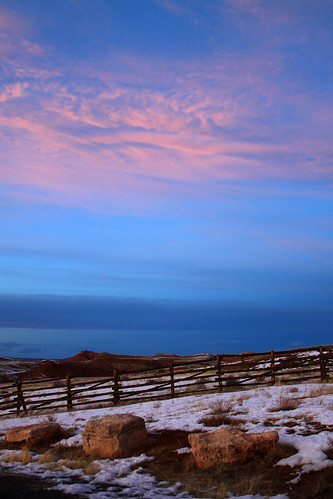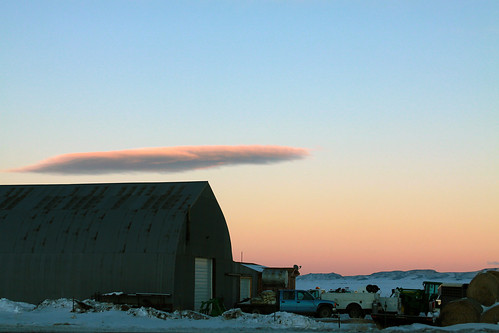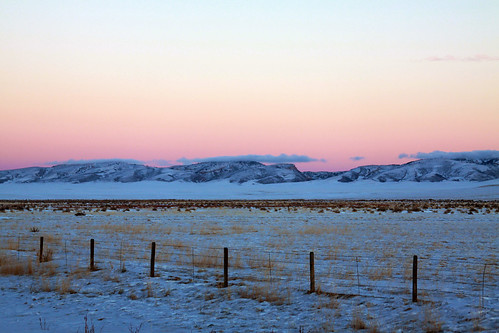Well, I heard back officially yesterday: after writing what I thought was the most unintelligent, incomprehensible piece of oh-just-forget-spelling-I-want-to-SLEEP examination I thought possible, I have actually passed my field exam in the Renaissance! STOP THE PRESSES! I have been declared competent! I'd like to thank God, my husband, my exam coordinator, Prozac, the guy who discovered caffeine, and my therapist.
But do you know what this really means??? I am officially cleared to teach your children British Literature I.
Muahahaha!
Calling all Theater companies and performers!
Open Call to Theater companies, performers, researchers:
I would like to hear other voices besides my own on this blog. If you'd like to write about your TLP experiences here, e-mail them to me and I'll put them up.
Topics can include dramaturgy to staging to personal responses to the play. Anything goes!
I would like to hear other voices besides my own on this blog. If you'd like to write about your TLP experiences here, e-mail them to me and I'll put them up.
Topics can include dramaturgy to staging to personal responses to the play. Anything goes!
Friday, February 25, 2011
Tuesday, February 22, 2011
A Winter Sunset in Laramie
So, it's been a week since I turned in my second field exam, and I'm finally feeling like I'm "recovered" from the experience. Due to some medical quirks, stress just tends to wipe me out physically, and when I turned in my exam I went back home and slept for eleven hours. So that was my convenient excuse to sit on my butt most of the following week and do nothing.
Well, I didn't exactly do nothing. In the last week I went to two SEC basketball games with my husband, a choir concert, and a friend's birthday party. I finally got to go to my liturgical prayer group, get back involved with the LGBTA, and even do a little curling. After months of doing nothing but school nonstop, I feel like such a hedonist. And I discovered that it feels pretty nice.
The only thing I'm missing in this sudden glut of Appalachian spring are the sunsets. Normally, we have simply amazing sunsets here in the evenings, full of blazing deep oranges and fuschia, but they haven't been living up to expectations recently. The afternoon clouds roll in like the tide and stifle the twilight sky. So, that naturally means I'm longing for some wide, open vistas with color. So, I thought I'd share the ones I keep sticking on my computer while I'm supposed to be working.
I'll start from north-central Wyoming, not terribly far from where some of my relatives live:
That's still not as deep as it looked from the top of this pasture. My dad and I were just speechless at how vibrant the pink clouds looked.
This is from Bosler as I approached Laramie from the North back in January. The sky had a nice, deep set of salmon and yellow to it:
Sometimes, even Bosler can be pretty. Both summer storm-clouds and twilight skies suit it admirably. A little farther down the road I stopped and snapped this one:
This one is from Laramie, about eight miles or so north of town. Yes, the color vibrance has been adjusted in this photo, but not as near as much as you'd think. That tiny purple streak along the very edge of the horizon wasn't showing up as well as I could see it with my eyes. I hope you enjoy!
Well, I didn't exactly do nothing. In the last week I went to two SEC basketball games with my husband, a choir concert, and a friend's birthday party. I finally got to go to my liturgical prayer group, get back involved with the LGBTA, and even do a little curling. After months of doing nothing but school nonstop, I feel like such a hedonist. And I discovered that it feels pretty nice.
The only thing I'm missing in this sudden glut of Appalachian spring are the sunsets. Normally, we have simply amazing sunsets here in the evenings, full of blazing deep oranges and fuschia, but they haven't been living up to expectations recently. The afternoon clouds roll in like the tide and stifle the twilight sky. So, that naturally means I'm longing for some wide, open vistas with color. So, I thought I'd share the ones I keep sticking on my computer while I'm supposed to be working.
I'll start from north-central Wyoming, not terribly far from where some of my relatives live:
That's still not as deep as it looked from the top of this pasture. My dad and I were just speechless at how vibrant the pink clouds looked.
This is from Bosler as I approached Laramie from the North back in January. The sky had a nice, deep set of salmon and yellow to it:
Sometimes, even Bosler can be pretty. Both summer storm-clouds and twilight skies suit it admirably. A little farther down the road I stopped and snapped this one:
This one is from Laramie, about eight miles or so north of town. Yes, the color vibrance has been adjusted in this photo, but not as near as much as you'd think. That tiny purple streak along the very edge of the horizon wasn't showing up as well as I could see it with my eyes. I hope you enjoy!
Labels:
In Pictures,
landscape,
Wyoming
Monday, February 14, 2011
The Texture of Memory Is Corduroy
[Jackrabbit is nearing the home stretch on her field exam! In the meantime, here's part two of that conversation regarding cognitive literary studies and The Laramie Project. If I have any brains left after the exam, I'll rejoin you shortly.]
So, in my last post I shared a personal anecdote that created a little doubt about Jed Schultz's version of events regarding his parents' ambivalence to his acting career in The Laramie Project. He claims that his duet from Angels in America was the first time his parents hadn't come to support him, but my friend "Andie" can remember lots of times that they didn't come to events because of scheduling conflicts. So, whom do I believe? Now that we're almost ten years down the road... I believe them both. Perhaps I don't believe that they both represent objective reality. But I do believe that both versions have story truth, and without any way to determine the objective facts, that's what I have to settle for.
Here's what I mean: I thoroughly believe that this moment was the first time Jed felt disappointment in his parents; it's also the first time he had to break away from their authority and suffer the consequences. I believe that his dismay and disappointment is real. And, as for "Andie?" I believe that her memory accurately represents her childhood recollections of paling around at school and church together with Jed because both of them had extremely busy parents. Now that the objective truth can't be discovered, I have to settle for story truth. He remembers the disappointment. She remembers the strength of their childhood relationship in the face of parents who couldn't always be there.
So, story truth isn't the same as objective truth, but it has value nonetheless. It's not a distinction we're normally willing to make, but it's an important one for understanding how we should approach the truth of The Laramie Project. If we treat this play as only forensic, verifiable fact, two things will happen. One is that people will discover that a lot of it's not "true" and want to reject what it has to tell us. The other is that they won't understand the depth and complexity that this play has to offer. We have to understand that the texture of memory is uneven and full of gaps, layers and crevices. We have to feel the textures of memory more like it's corduroy than silk.
Friday, February 11, 2011
Feeling the Textures of Memory in TLP
[Hello all! I'm starting my Renaissance field exam this weekend, and so while I'm tearing my hair out over Christopher Marlowe and John Donne, I've written a couple of posts to bide the time while I'm away. Hope you enjoy them!]
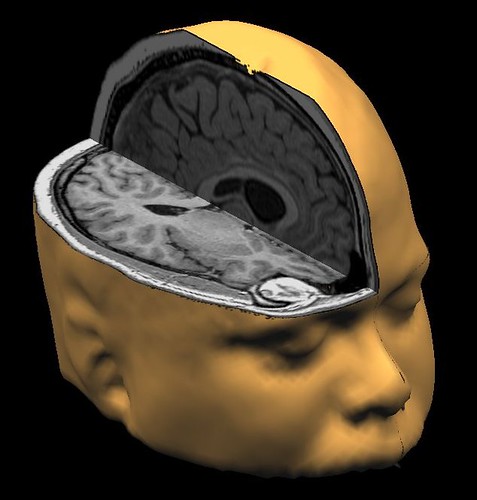 As is pretty obvious at this point, I am fascinated by memory and how people create their sense of identity from their experiences. When I teach my research course here at the university, we use autobiographical memory as a theme that we study and learn research techniques about. In particular, we spend time learning about how frail memory actually is, and how those memories we use to define ourselves get molded to fit how we see the world. If you look at the two previous blog series about my own memories of this event, that's really clear, too: my memory is riddled with inconsistencies which are often dictated by the stories I want to tell-- or want to hide-- about who I think I am.
As is pretty obvious at this point, I am fascinated by memory and how people create their sense of identity from their experiences. When I teach my research course here at the university, we use autobiographical memory as a theme that we study and learn research techniques about. In particular, we spend time learning about how frail memory actually is, and how those memories we use to define ourselves get molded to fit how we see the world. If you look at the two previous blog series about my own memories of this event, that's really clear, too: my memory is riddled with inconsistencies which are often dictated by the stories I want to tell-- or want to hide-- about who I think I am.
No memory can be told without a narrative, but the contingencies of storytelling-- of audience, of intent, overall meaning, interpretation-- will invariably rework the material of memory into something else, something with a different texture than before. And those who listen must take that narrative and reverse-engineer it to glean information, to re-create an idea of what that original, "pristine" memory once looked like. They try to flatten out the textures of memory to make it what it once was. And I think many would argue that such an exercise is folly. Instead of trying to flatten out those textures, a better tack might be to run our fingers over them, feel its knap and inconsistencies as part of their makeup.
 As is pretty obvious at this point, I am fascinated by memory and how people create their sense of identity from their experiences. When I teach my research course here at the university, we use autobiographical memory as a theme that we study and learn research techniques about. In particular, we spend time learning about how frail memory actually is, and how those memories we use to define ourselves get molded to fit how we see the world. If you look at the two previous blog series about my own memories of this event, that's really clear, too: my memory is riddled with inconsistencies which are often dictated by the stories I want to tell-- or want to hide-- about who I think I am.
As is pretty obvious at this point, I am fascinated by memory and how people create their sense of identity from their experiences. When I teach my research course here at the university, we use autobiographical memory as a theme that we study and learn research techniques about. In particular, we spend time learning about how frail memory actually is, and how those memories we use to define ourselves get molded to fit how we see the world. If you look at the two previous blog series about my own memories of this event, that's really clear, too: my memory is riddled with inconsistencies which are often dictated by the stories I want to tell-- or want to hide-- about who I think I am.No memory can be told without a narrative, but the contingencies of storytelling-- of audience, of intent, overall meaning, interpretation-- will invariably rework the material of memory into something else, something with a different texture than before. And those who listen must take that narrative and reverse-engineer it to glean information, to re-create an idea of what that original, "pristine" memory once looked like. They try to flatten out the textures of memory to make it what it once was. And I think many would argue that such an exercise is folly. Instead of trying to flatten out those textures, a better tack might be to run our fingers over them, feel its knap and inconsistencies as part of their makeup.
Labels:
Jed Schultz,
memory,
narrative,
personal memory,
truth,
Truth and Reconciliation
Wednesday, February 9, 2011
This moment of ambivalence brought to you by: Iconography!
Okay, since I'm slaving away on studying for my second field exam as we speak, I didn't want to leave everyone without at least something to chew over while I'm away from the blog. So, without further ado, I'd like to introduce a work by Father William Hart McNichols, a priest, former Jesuit, and very talented Catholic iconographer (check out his other work at that link above).
The work is a prayer card depiction passion, dedicated to "The Memory Of The "1,470 Gay and Lesbian Youth Who Commit Suicide In the U.S. Each Year And To The Countless Others Who Are Injured Or Murdered." I love the sentiment of this prayer card, but... Whatever. Let's see what you all think.
The work is a prayer card depiction passion, dedicated to "The Memory Of The "1,470 Gay and Lesbian Youth Who Commit Suicide In the U.S. Each Year And To The Countless Others Who Are Injured Or Murdered." I love the sentiment of this prayer card, but... Whatever. Let's see what you all think.
Ready? Discuss.
Labels:
ambivalence,
Christianity,
faith,
Matt Shepard,
memorials
Tuesday, February 8, 2011
Interesting developments in the Kato case...
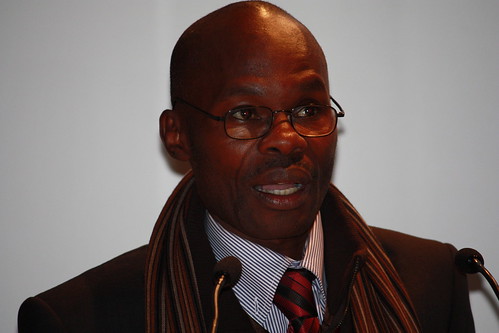 Not to harp on current events, but there's been an interesting development in the local coverage of the murder of Ugandan activist David Kato. It makes me think back to a certain 20/20 special with Elizabeth Vargas, actually. The very beginning of the article briefly characterizes his death as an "iron bar" robbery, but it mainly focuses on Kato as "evil gay person," in a sense justifying his death as a consequence of his personal life. The international outcry is simply dismissed.
Not to harp on current events, but there's been an interesting development in the local coverage of the murder of Ugandan activist David Kato. It makes me think back to a certain 20/20 special with Elizabeth Vargas, actually. The very beginning of the article briefly characterizes his death as an "iron bar" robbery, but it mainly focuses on Kato as "evil gay person," in a sense justifying his death as a consequence of his personal life. The international outcry is simply dismissed. The piece is being run by the Uganda Daily Monitor, and their newest piece is called "Unmasking David Kato." It crossed my radar because at least one of their sources is publicly decrying the paper for completely falsifying information-- the blogger GayUganda. Apparently, the paper took a trip to his blog for information, and GayUganda is crying foul. To make matters even worse, Kenyan papers are picking up the same information and spreading the story across international borders. Actually the post from the Daily Nation seems much worse than the Monitor story to me.
GayUganda reports that he's unsure what to do about the libel in this case. I'll be interested to see what he decides to do, but in any case, it's interesting...
Monday, February 7, 2011
To Egypt With Love

I just love Democracy. And I really love democracy when extremely disparate groups come together and join in peaceful, public demonstration in support of it. And, this afternoon on my campus in Appalachia I had a chance too see how awesome that can be.
A very disparate, grassroots group of students started planning six days ago for a rally in honor of the Egyptian push for democracy, which was put together by both domestic, international, and even Egyptian undergraduates. The turnout was very good, and other than one local reporter pushing a couple of students on some tendentious questions about the Muslim Brotherhood's involvement in the Cairo demonstrations, it was all extremely positive. I saw students and faculty from secular, Christian, Jewish, and Muslim associations all in attendance, side-by-side. I ran into some of my former students and my minister friend all in attendance.
One of my co-workers teaches a class on space, resistance and public discourse, and last Friday her students largely told her that they didn't think people could just get together and proclaim their views in public like this. I saw her taking surveys and interviews with some of the participants just to show her students that, yes, they can publicly call each other to action. Here are some pics of the event for you!








Labels:
activism,
In Pictures
Subscribe to:
Comments (Atom)


